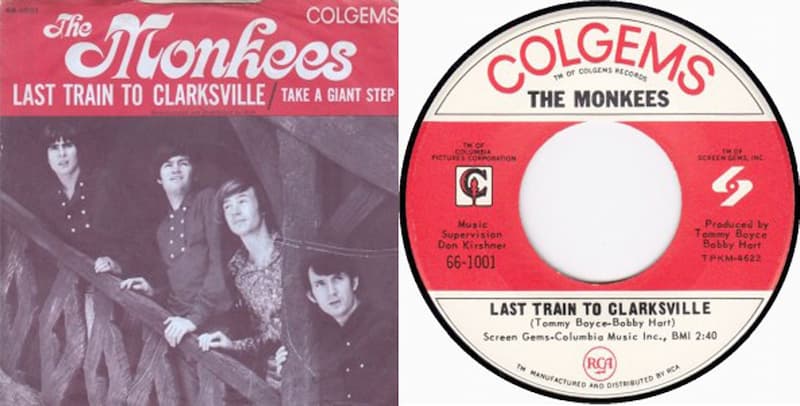
About The Song
It was the summer of 1966, and pop music was about to change dramatically. A new prefabricated band was set to take over the hearts, minds and record-changers of rabid fans across America: the Monkees. The group was created after a casting call went out in September 1965 via The Hollywood Reporter and Daily Variety looking for “Folk & Roll Musicians-Singers for acting roles in new TV series. Running parts for 4 insane boys, age 17–21. Want spirited Ben Frank’s-types. Have courage to work. Must come down for interview.”
Out of the more than 425 applicants for the roles, Michael Nesmith, Peter Tork and Micky Dolenz were chosen. Davy Jones had already been targeted as the group’s lead singer. When it came time to craft music for the fledgling TV band, songwriters Tommy Boyce and Bobby Hart found themselves writing a series of new songs. Among them: “Last Train to Clarksville,” which was secretly about the Vietnam War.
“We were just looking for a name that sounded good,” Bobby Hart said about the tune. “There’s a little town in Northern Arizona I used to go through in the summer on the way to Oak Creek Canyon called Clarksdale. We were throwing out names, and when we got to Clarksdale, we thought Clarksville sounded even better. We didn’t know it at the time, [but] there is an Air Force base near the town of Clarksville, Tennessee – which would have fit the bill fine for the story line. We couldn’t be too direct with The Monkees. We couldn’t really make a protest song out of it – we kind of snuck it in.”
Released August 16, 1966, “Last Train to Clarksville” was soon followed by the debut of The Monkees TV show on NBC in September 12 of that same year. The show’s immediate popularity with America’s youth combined with the catchy nature of the song sent “Last Train to Clarksville” up the Billboard charts to peak at #1 for the week of November 5, 1966. It snatched the spot from ? and the Mysterions’ “96 Tears.”
Video
https://www.youtube.com/watch?v=ZcXpKiY2MXE